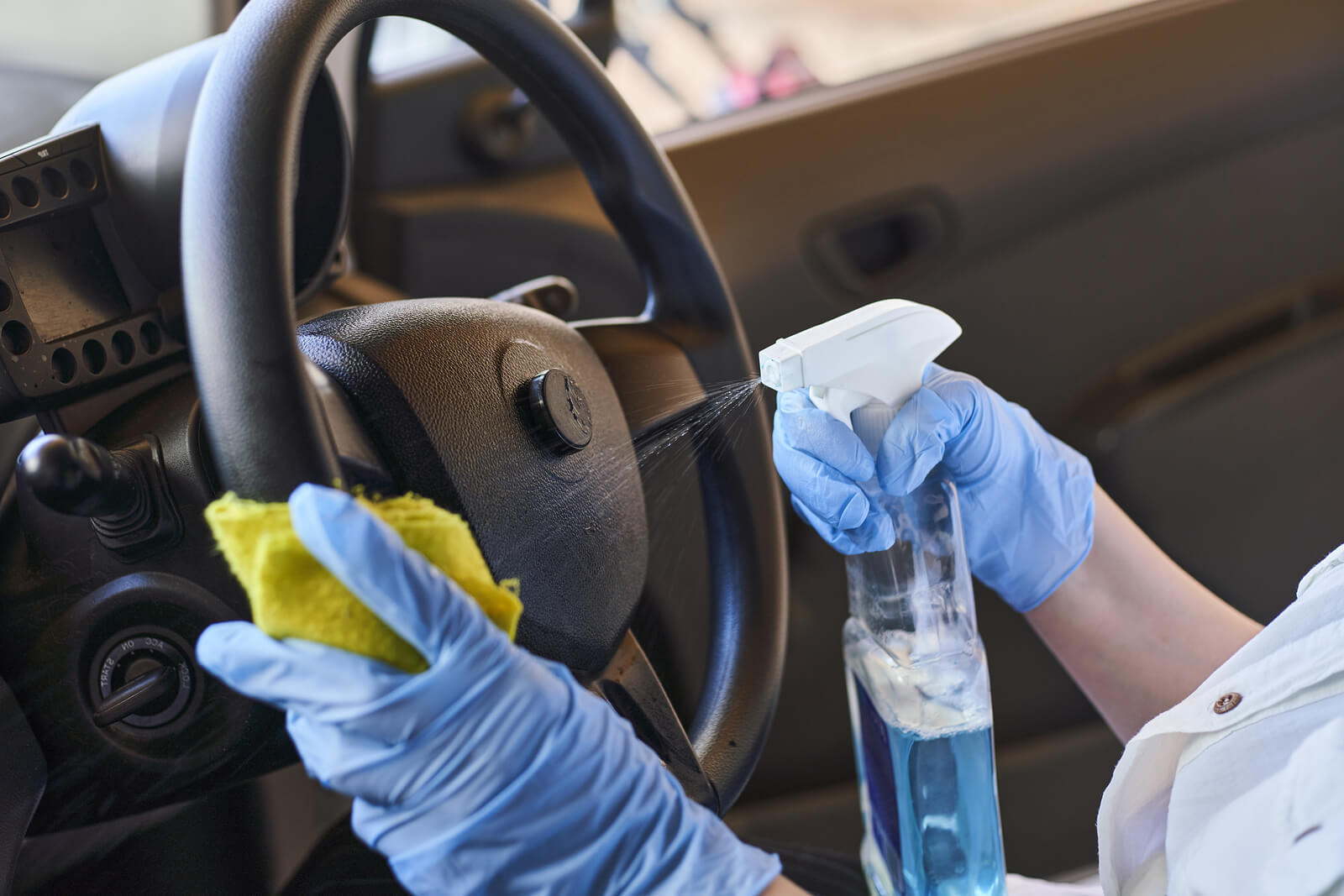According to the Centers for Disease Control and Prevention (CDC), washing your hands, using a hand sanitizer, and cleaning and disinfecting high-touch surfaces are some of the best ways to defend against spreading the viruses.
When it comes to cleaning and disinfecting your car, you should clean frequently touched surfaces, including the steering wheel, door handles, shift lever, any buttons or touch screens, wiper and turn signal stalks, passenger and driver door armrests, grab handles, and seat adjusters.
A car’s interior is less durable than most surfaces at home, so you should be careful about disinfecting those surfaces without damaging them.
Most of the same household cleaners that kill viruses on hard surfaces at home can also perform a similar task in a car without damaging its interior and chances are, you already have some of these products at home.
Nearly every interior surface of a vehicle can be cleaned with isopropyl alcohol and according to the CDC Alcohol solutions that contain at least 70 percent alcohol are effective against viruses. Most car leathers and imitation leathers have urethane coatings for protection, which is safe to clean with alcohol. But in the long run, cleaning leather with alcohol can leave it susceptible to damage and discoloration. You should use a good leather conditioner afterward.
Soap and water are safe for most car interiors—especially fabrics and older leather that have begun to crack. Just avoid scrubbing too hard as you can damage the surfaces.
Don’t try using bleach or hydrogen peroxide on the inside of your car. While they can both kill viruses on surfaces, they could damage your car’s upholstery. Also don’t use ammonia-based cleaners on car touch screens, as they can damage their anti-glare and anti-fingerprint coatings.
It is a good practice to clean all surfaces with a microfiber cloth. That’s because it’s made of fabric that consists of tiny little loops that capture and sweep away dirt and dust particles before they can scratch delicate or shiny plastic surfaces. By comparison, the dirt and debris in your car can stick to even the cleanest paper towels or napkins and scratch surfaces—”like sandpaper”.
When cleaning your car’s interior, keep these tips in mind:
● Soap is always your best bet. It is harmful to viruses.
● Avoid bleach except on simple plastics.
● Don’t use solvents or floor cleaning detergents.
● Hand sanitizers contain alcohol, which can dry out leather. Use a quality leather conditioner to keep it healthy.
● When in doubt, test all cleaners on a small out of sight surface
● Wipe off what you wipe on; don’t leave chemicals to linger on surfaces.
● Prioritize the surfaces you touch. Don’t forget buttons, knobs, and switches, hand break, your rearview mirror, even your gas cap.
Once you have finished cleaning the interior of your car, do not forget to wash your hands before and after driving. It’s a good habit to get into even outside of the spread of viruses, as it will keep your steering wheel and other frequently touched surfaces in your car from looking dingy. Washing your hands is still the best way to defend yourself against COVID-19.
Angel’s Transmission & Auto Repair remains open for business. Below are the strict disinfection and sanitizing protocols in place, based on the Centers for Disease Control and Prevention’s (CDC) guidelines, to keep our team and our customers safe, while continuing to deliver top-notch service to our customers.
Angel’s Transmission and Auto Repair has been serving clients in Mission Viejo and nearby communities for nearly three decades. Our technicians are continuously training to stay updated on the latest information and technology. The skilled and certified technicians average 20 years of experience in the Automotive Repair Industry.
Call us (949)587-9060 for an appointment or fill out our contact form and let us help you with transmission repair services or general auto repair.



